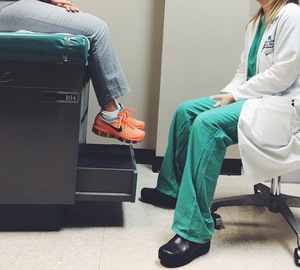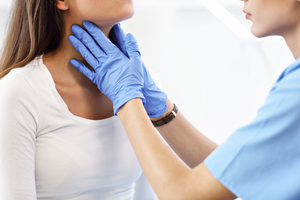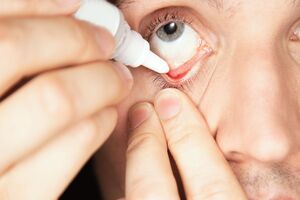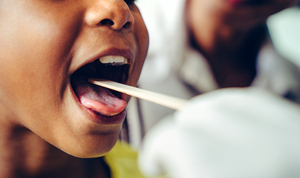Book an STD Test in Fayetteville, NC
Own a clinic? Add your location.
Help patients book appointments with you on Solv. It's free!
10 instant-book locations

AFC Urgent Care, Dunn
AFC Urgent Care
TODAY
View more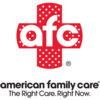
AFC Urgent Care, Sanford
AFC Urgent Care
TODAY
View more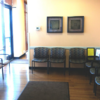
NextCare Urgent Care, Fayetteville
NextCare Urgent Care
TODAY
View more
Available times on Tuesday
Self-pay pricing
Clear self-pay prices
No more surprise bills. Solv is committed to making getting healthcare as easy as buying groceries at the store, including knowing the price of care upfront.

Available times on Tuesday
Self-pay pricing
Clear self-pay prices
No more surprise bills. Solv is committed to making getting healthcare as easy as buying groceries at the store, including knowing the price of care upfront.

Available times on Tuesday
Self-pay pricing
Clear self-pay prices
No more surprise bills. Solv is committed to making getting healthcare as easy as buying groceries at the store, including knowing the price of care upfront.

Available times on Tuesday
Self-pay pricing
Clear self-pay prices
No more surprise bills. Solv is committed to making getting healthcare as easy as buying groceries at the store, including knowing the price of care upfront.

Available times on Tuesday
Self-pay pricing
Clear self-pay prices
No more surprise bills. Solv is committed to making getting healthcare as easy as buying groceries at the store, including knowing the price of care upfront.

Available times on Tuesday
Self-pay pricing
Clear self-pay prices
No more surprise bills. Solv is committed to making getting healthcare as easy as buying groceries at the store, including knowing the price of care upfront.

Available times on Tuesday
Self-pay pricing
Clear self-pay prices
No more surprise bills. Solv is committed to making getting healthcare as easy as buying groceries at the store, including knowing the price of care upfront.
Highsmith - Rainey Express Care
Highsmith - Rainey Express Care
Doctor's Urgent Care Center
Doctor's Urgent Care Center
Concentra Urgent Care, Fayetteville
Concentra Urgent Care
Cape Fear Valley Express Care
Cape Fear Valley Express Care
Fayettville Urgent Care
Fayettville Urgent Care
Rapha Primary Care Center
Rapha Primary Care Center
Carolina Urgent & Family Care
Carolina Urgent & Family Care
Westlake Testing Center
Westlake Testing Center
Lakeview Urgent Care & Family
Lakeview Urgent Care & Family
Hope Mills Urgent Care & Med
Hope Mills Urgent Care & Med
Own a clinic? Add your location.
Help patients book appointments with you on Solv. It's free!
Overview of STD Testing in Fayetteville
Who should get tested for STDs?
Anyone who is sexually active should consider getting tested for STDs, particularly if they have multiple partners or are not consistently using protection. The CDC recommends that all adults and adolescents from ages 13 to 64 should be tested at least once for HIV. Regular testing is also recommended for those who have unprotected sex, share injection drug equipment, have been diagnosed with hepatitis B, or have been treated for a sexually transmitted infection, tuberculosis, or hepatitis.
Importance of getting tested
Getting tested for STDs is crucial for several reasons. Firstly, many STDs are asymptomatic, meaning they do not show any symptoms. Without testing, these diseases can go undetected and untreated, leading to serious health complications down the line. Additionally, knowing your STD status can help prevent the spread of these diseases to others. According to the CDC, regular testing can also reduce the stigma associated with STDs, which can often deter individuals from seeking the care they need.
Std testing options in Fayetteville, NC:
Urgent care and walk-in clinics
Urgent care centers and walk-in clinics are convenient options for STD testing in Fayetteville. These facilities often offer same-day appointments, making it easy to fit testing into your schedule. For instance, NextCare Urgent Care, located at 217 Glensford Dr, Fayetteville, NC 28314, is one such facility where you can book same-day and next-day testing appointments through Solv’s website and mobile app.
Primary care providers
Your primary care provider is another excellent resource for STD testing. They can provide you with a comprehensive exam and discuss your sexual health in a confidential setting. If needed, they can also provide treatment or refer you to a specialist.
Free STD testing and community health centers
There are also several free STD testing and community health centers in Fayetteville. These centers provide affordable testing options, particularly for individuals without insurance. However, it's important to note that availability may vary, and some centers may operate on a sliding fee scale based on income.
At-home testing
At-home testing kits are another convenient option for STD testing. These kits can be ordered online, used in the privacy of your home, and then sent back to a lab for analysis. Results are usually available within a few days.
Prevalence of STDs in Fayetteville
The prevalence of STDs in Fayetteville, NC, is a significant public health concern. According to the CDC, Fayetteville has a higher rate of STDs compared to nearby counties such as Forsyth County and Albemarle County. The most commonly reported STDs include chlamydia, gonorrhea, and syphilis. It's important to note that these numbers only represent reported cases, and the actual number of infections is likely higher.
Risk factors related to STDs in Fayetteville
Several risk factors contribute to the high prevalence of STDs in Fayetteville. These include a lack of public awareness about STDs, limited access to healthcare, and socioeconomic factors such as poverty and education levels. Additionally, stigma surrounding STD testing can also deter individuals from seeking the care they need. It's crucial for residents to understand the importance of regular testing and to take advantage of the 62 testing locations available in the area.
Solv has strict sourcing guidelines and relies on peer-reviewed studies, academic research institutions, and medical associations. We avoid using tertiary references.
STD Testing FAQs
Where should I get an STD test in Fayetteville?
In a doctor's office, a health clinic, or an urgent care center, you can get an STD test. If you're experiencing symptoms, it's best to visit a doctor's office, where they can also treat you or issue you a prescription. While some Fayetteville clinics and urgent care centers allow walk-in appointments, it's advisable to make an appointment ahead of time to prevent excessive waits.
How long does it take to get STD test results?
Various testing are required for various STDs. Depending on the type of STD test you took, you may receive your results in two to ten days. Some outcomes may be immediately available. Your doctor may be able to diagnose an STD through a physical examination. In some cases, your doctor's office may only contact you if your test results are positive.
How much does an STD test cost in Fayetteville?
The cost of STD testing is governed by several factors, including where you are tested, the type of test you need, and if you have health insurance. Some Fayetteville clinics may offer free testing or testing on a sliding scale based on your income. Because of the cost, don't put off obtaining an STD test. With your doctor's office, discuss the cost and payment choices. Delaying STD treatment may have catastrophic implications.
Does insurance cover STD testing in Fayetteville?
The cost of STD testing is governed by a number of factors, including the location of the test, the type of test required, and whether or not you have health insurance. Some clinics may provide free or sliding-scale testing, depending on your income. Don't let the expense of an STD test deter you from getting one. With your doctor's office, discuss the price and payment choices. Delaying STD treatment could have catastrophic ramifications.
How do they test for STDs in Fayetteville?
There are around 20 different forms of STDs, each with its own set of diagnostic tests. No single test exists that can detect all types of STDs. Your doctor can help you figure out which tests you'll need. In STD testing, a blood sample or a urine sample may be used. Your doctor may also take a swab from the inside of your cheek, your vaginal area, or another potentially infected place.
What STDs can be detected by a blood test?
Blood tests are used to diagnose hepatitis B, hepatitis C, herpes, HIV, and syphilis. In a laboratory, a technician examines a blood sample for antibodies that the body has produced in reaction to disease. The virus's DNA can also be detected by several blood tests. Remember that if you've recently been exposed to an STD and your body hasn't yet produced antibodies, you could test negative even if you have the disease.
Can I get a same-day appointment for STD testing in Fayetteville?
Many Fayetteville, NC urgent care providers offer same-day and next-day appointments, which you may book through Solv. To make healthcare more accessible to everyone, we collaborate with thousands of top-rated local providers. Our physician partners understand that waiting days, if not weeks, for an appointment isn't always the best option, and they share our commitment to simple, accessible health care.
How can I book an STD test on Solv?
To find a healthcare practitioner in your area, simply enter your location and search for "STD test" on our website. A list of providers and available appointments can be found on the following page. Choose the most convenient time and location for you. Make it clear that you've come for STD testing.
How long does an STD test take in Fayetteville?
If you have a specific STD, inform your doctor so that the necessary test can be scheduled. Otherwise, they'll help you figure out which tests you'll need. The nurse or doctor simply needs a few minutes to get a blood sample, a urine sample, or a swab from the probable infection site.
Can I test myself for STDs at home?
Although there are several STD home tests available, not all of them are accurate. The accuracy of any STD test is determined by the quality of the sample taken. For home STD kits, a blood sample, a urine sample, or both are frequently required. Because doctors and nurses have more experience collecting samples, traditional in-office STD testing is the most accurate.
Related Searches
DOT Exam in Fayetteville
Ear Wax Removal in Fayetteville
Physical Exam in Fayetteville
Sports Physicals in Fayetteville
A1C Test in Fayetteville
Allergy Testing in Fayetteville
CMP Test in Fayetteville
Diabetes Test in Fayetteville
Diagnostic Test in Fayetteville
Glucose Test in Fayetteville
H Pylori Test in Fayetteville
Hepatitis test in Fayetteville
Lab Tests in Fayetteville
Mono Test in Fayetteville
Pregnancy Test in Fayetteville
Pulmonary Function Test in Fayetteville
RSV Test in Fayetteville
STD Testing in Fayetteville
Strep Test in Fayetteville
TB Test in Fayetteville
Thyroid Test in Fayetteville
Vitamin D Test in Fayetteville
Aetna Urgent Care
Blue Cross Blue Shield Urgent Care
Cigna Urgent Care
COVID-19
Flu
United Health Urgent Care
» All services in FayettevilleFind STD testing
Nearby cities
Everyday Healthcare, Simplified
Expert advice to help you live your best life

